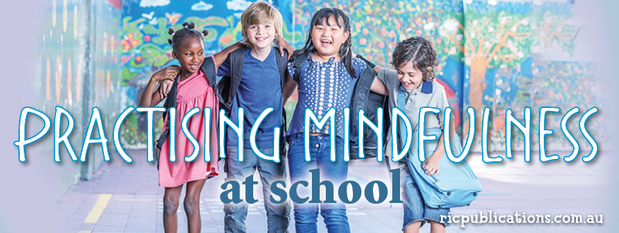- Wednesday 12 October 2016
- 0 Comments
Do you have students that have difficulty focusing on given tasks, that exhibit signs of anxiety or depression, or have difficulty regulating their emotions? While these students stand out in our mind, all students need to develop mindfulness and coping strategies to self-regulate their thoughts and actions, regardless of the severity or diagnosis of a mental health condition.
Developing mindfulness in schools
- Mindful schools: This adaptable step-by-step program promotes strong connections between teachers and students, while improving students' attention, self-regulation, engagement and compassion. It is comprised of 16 core 15-minute lesson plans to be presented twice a week over 9 weeks.
- Smiling minds: This program brings mindfulness meditation into the classroom to assist students with regulating sleep, managing emotions, increasing concentration, improving behaviour, increasing resilience and stress management.
- Mindfulness in education: This site provides tips for teachers to develop mindfulness in their own lives as well as their classrooms. It provides meditation and breathing activities, videos demonstrating mindfulness in the classroom and other resources for use in your classroom.
Related childrens literature
- Mindful movements: ten exercises for well-being by Thich Nhat Hanh
- Master of mindfulness: how to be your own superhero in times of stress by Laurie Grossman
- Sitting still like a frog: mindfulness exercises for kids (and their parents) by Eline Snel
- Mindful monkey, Happy panda by Lauren Alderfer
- Peaceful piggy meditation by Kerry Lee Maclean
- Peaceful piggy yoga by Kerry Lee Maclean
- Meditation is an open sky: Mindfulness for kids by Whitney Stewart
- You are a lion! And other fun yoga poses by Tae-Eun Yoo
- Take the time: Mindfulness for kids by Maud Roegiers
- A boy and a bear: The children's relaxation book by Lori Lite
Developing mindfulness in the classroom has many psychological and physical health benefits to all students, including reducing stress levels, reducing tiredness through better sleep patterns and reducing irritability. It allows students to increase their emotional stability, their ability to effectively manage problems and their ability to learn and remember information. Therefore, as educators, it is important we give students the time to learn and practise mindfulness in our classrooms.
For more great health resources, check out Australian Curriculum Health and Mental health.
